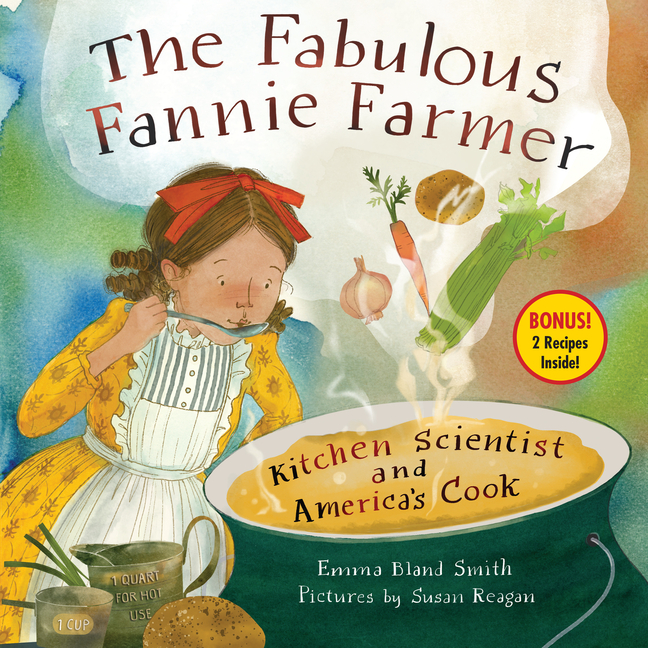Book Description
for The Fabulous Fannie Farmer by Emma Bland Smith and Susan Reagan
From Cooperative Children's Book Center (CCBC)
Fannie Farmer loved cooking as a child. When she lost the use of a leg as a teenager due to polio, her love of cooking helped reshape her vision for the future; while she recovered, she cooked. Fannie noticed that the imprecise instructions and measurements in most recipes in the late 19th and early 20th centuries (e.g., “a suspicion of nutmeg”) made for inconsistent results. She enrolled in the Boston Cooking School and stayed on after graduation, eventually becoming principal. She led not only the school but the charge for using exact measurements and providing precise instructions in recipes, and showcased the results when she rewrote the school cookbook, which became a hit with the general public. This spirited recounting of the accomplishments of this food pioneer includes terrific end matter, beginning with a note about research and conjecture versus fact in the narrative before exploring many dimensions of Fannie’s life, work, legacy, and the times in which she lived. A design that highlights quotes from Fannie throughout, alongside pleasing watercolor and digital illustrations, round out this winning picture book biography.
CCBC Choices 2025. © Cooperative Children's Book Center, Univ. of Wisconsin – Madison, 2025. Used with permission.


